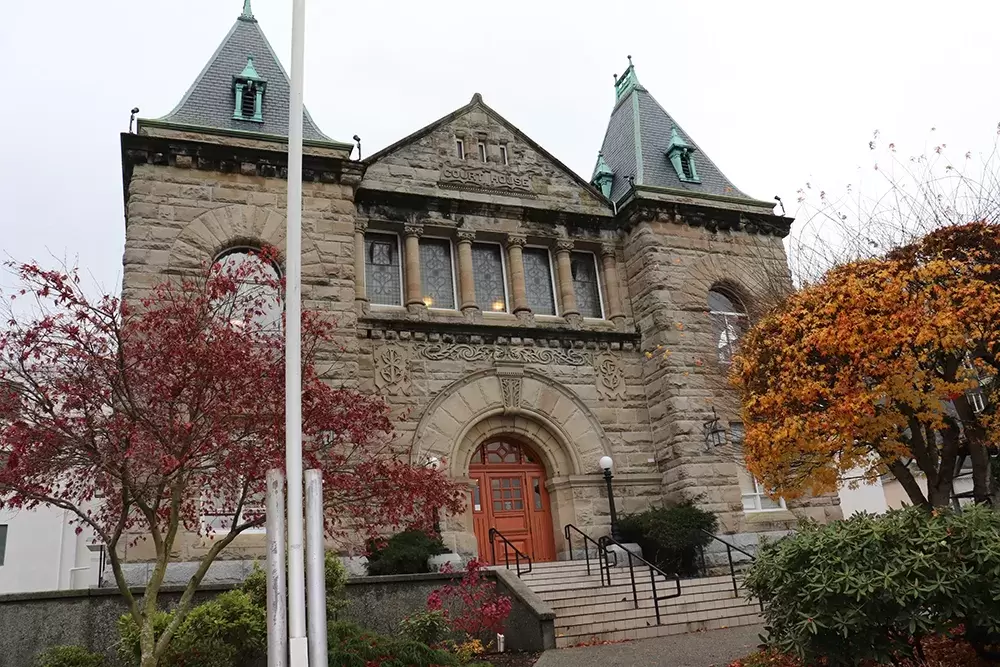“I am excited and relieved,” said NTC President Judith Sayers after the B.C. Supreme Court ruled that smudging and other Indigenous cultural practices would not be banned in the province’s public schools.
Justice Douglas Thompson has released his 47-page ruling on Servatius v. Alberni School District No. 70 - and intervenor Nuu-chah-nulth Tribal Council - just over eight weeks after the trial was held in the Supreme Court of British Columbia in Nanaimo.
During the five-day trial held Nov. 18 - 22, the court heard testimony from several witnesses to a school event that featured an Indigenous smudging demonstration for children attending John Howitt Elementary School in Port Alberni in September 2015.
Present at the school were two children of Candice Servatius, a Christian, who later alleged that her daughter, then age 9, was forced to attend a smudging event against her will.
Servatius, concerned about her Christian children being exposed to “the explicitly supernatural and religious nature of the cleansing ritual”, approached the school to seek assurances that her children be excluded from such events.
But during the same school year, in January 2016, students from JHES took part in a school assembly that featured an invited guest who performed a First Nations hoop dance. Sometime during the assembly, the performer said a prayer in an Indigenous language over a microphone.
Dissatisfied with the outcome of her communications with the school, Servatius brought the matter to court, facing off with the Board of Education of School District 70 (Alberni) and the Attorney General of British Columbia.
Through her council, Jay Cameron and James Kitchen of the Alberta-based Justice Center for Constitutional Freedoms, Servatius challenged SD70 for allowing the practice of Indigenous cultural ceremonies like smudging and exposing children to Indigenous prayers in school.
Counsel for Servatius argued that the school imposed the ceremony on the children, and by doing so, infringed on their right to freedom of religion in the school, according to the Canadian Charter of Rights and Freedoms.
In her petition, Servatius sought a court order that would ban smudging along with “religious or spiritual rituals, cleanings, ceremonies and prayer” during mandatory school time throughout the province of British Columbia.
Several school staff members testified this was not the case and that in fact, some children left the room when the smudging began. After hearing testimony from several witnesses to the smudging event, Justice Thompson concluded that the evidence given by Servatius’ daughter, who was age 9 at the time, was unreliable in that her testimony did not align with that of the teachers and other adult witnesses. Justice Thompson did not agree that the children were coerced to partake in a smudge ceremony.
However, the judge declined to rule if smudging is a religious or purely cultural practice.
“It is not necessary to the outcome of this case for me to resolve this issue, and I respectfully decline to do so,” wrote Thompson.
He concluded that the intention of the school district was not to profess, adopt, or favor Indigenous spirituality, “but to teach about Indigenous culture and to help make Indigenous students feel like they belong at JHES.”
“The petitioner (Candice Servatius) has failed to establish that the Nuu-chah-nulth smudging in her children’s classrooms or the prayer said by the hoop dancer at the school assembly interfered with her or her children’s ability to act in accordance with heir religious beliefs,” said Justice Thompson in his written judgement, dated January 8, 2020.
The judge did not agree with Servatius’ argument that the school district’s use of Indigenous practices is comparable to the residential school system. The judge cited Servatius’ submission, which stated “that the School District’s position is in a certain way, an echo of the gross abuses of the residential school days where First Nations children were taken from their homes, deprived of family support, and compelled by the state to participate in religious practices against their will.”
“I agree with the respondents and the NTC that this aspect of the petitioner’s argument is insensitive and regrettable hyperbole, especially considering the magnitude of what occurred a few kilometers down the road during the 82 years that the Alberni Indian Residential School was open. The petitioner’s provocative assertion tends to underscore the irony in her complaint that the events at JHES, against the historical backdrop, amount to religious doctrination,” he wrote in his judgement.
He went to say that there has been no infringement of Servatius’ or her children’s freedom of religion. The mother’s petition was dismissed.
The plaintiff’s lawyer, Jay Cameron said in a media release that the Justice Centre for Constitutional Freedoms is disappointed with the decision.
“We are reviewing the decision with an eye to next steps,” stated Cameron, counsel for Candice Servatius and Litigation Manager at the Justice Centre for Constitutional Freedoms. “This is a disappointing decision for citizens from any religion or cultural background, each of whom has a constitutional right to be free from stat-compelled spirituality.”
President Sayers sees the ruling as a victory not only for Indigenous children but for all children in the province.
“This is a victory for the children and their education because this gives them the ability to learn about our culture and it gives Nuu-chah-nulth an opportunity to share that; I am happy that people can learn about culture,” she said. “That is what our world is about, we have to learn about everything.”
Sayers acknowledged Justice Thompson’s sensitive and thorough approach as he presided over the case. Because of his decision, Nuu-chah-nulth Education Workers can continue their work without fear and limitations on what they can do in public schools.
“This is one of the big steps in reconciliation – is understanding one another,” said Sayers.







